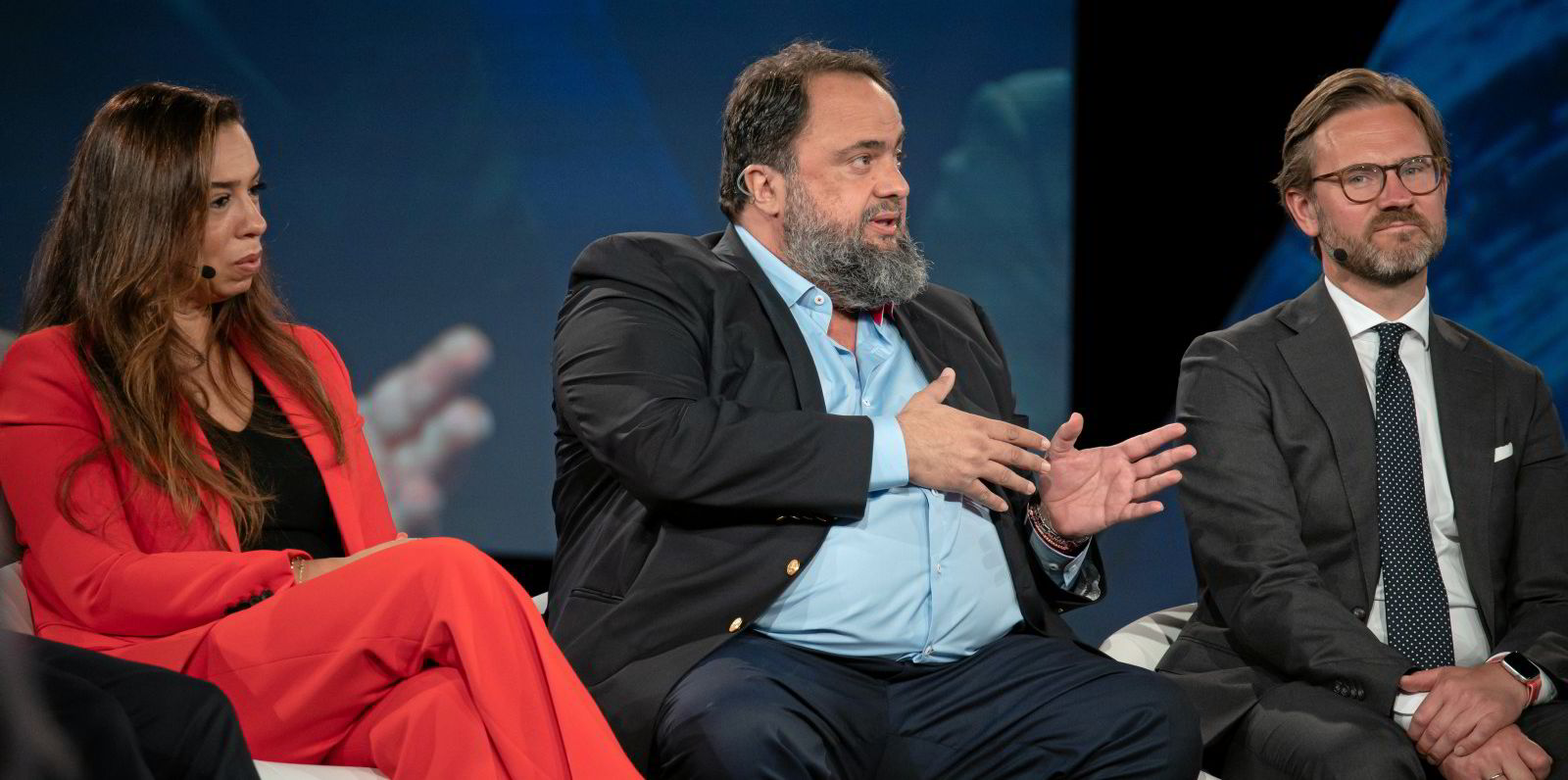Greek owner Evangelos Marinakis will boost the fleet of his US-listed company Capital Product Partners (CPLP) with 11 LNG carriers from his private fleet and turn it into a pure-play gas carrier owner.
The new outfit, to be named Capital New Energy Carriers LP, intends to divest its container ships, which it no longer considers part of its core business, CPLP said on Monday.
CPLP has a fleet of 15 boxships and seven latest-generation LNG carriers. According to VesselsValue, the container ships have a combined market value of more than $800m.
In lieu of the boxships, the company will restock its fleet with 11 latest-generation, two-stroke LNG ships delivered between 2023 and 2027.
This will “make the partnership the largest US publicly listed owner of two-stroke LNG carriers”, CPLP said.
Chief executive Jerry Kalogiratos described the deal as a “milestone transaction” for the company.
“The commitment to change the name of the Partnership to ‘Capital New Energy Carriers LP’ and to gradually divest our container vessels reflects our renewed business focus on LNG and energy transition shipping,” he said.
CPLP said it has already entered into an “umbrella agreement” with private Marinakis arm Capital Maritime & Trading for the 11 LNG newbuildings for a total acquisition price of $3.13bn.
CPLP will also have right of first refusal to acquire two ammonia carriers and two liquid CO2 (LCO2) carriers that Capital Maritime ordered this year, as well as any other two-stroke LNG vessels in the future.
Five of the LNG carriers CPLP has already agreed to buy are due to be delivered through to July 2024 and have secured, long-term employment worth $1.43bn with QatarEnergy, Bonny Gas Transport, Tokyo Gas and LNG Marine Transport.
The entire deal will be financed through bank debt and a $220m sellers’ credit that Capital Maritime will provide to CPLP. The sellers’ credit will carry a fixed rate of 7.5% payable in June 2027.
Furthermore, CPLP will carry out a $500m rights offering on 27 November.
As part of that offering, it will distribute to holders of its common units rights to purchase newly issued common units, at a price per unit equal to the greater of $14.25 and 95% of the volume-weighted average price of the common units trading on the Nasdaq.
“The subscription price per common unit in the offering will not be greater than $14.50,” CPLP said. The units were trading at $13.68 in early New York trading on Monday, giving the company a market value of $273m.
Solid backstop
According to Kalogiratos, the terms of the rights offering and the sellers’ credit shows that Capital Maritime, CPLP’s largest shareholder and sponsor, “fully backstops” the deal.
The sale of CPLP’s boxship fleet will not happen overnight.
In a presentation late on Monday, management guided that the divestments would take place in a gradual, selective and opportunistic manner.
The decision to shake off the boxships goes hand in hand with a gloomier assessment of the market.
In its third-quarter results released separately, the company said the outlook for the rest of 2023 and 2024 shows that “container shipping markets are likely to continue to experience pressure due to declining demand and increased vessel supply”.
CPLP net profit dropped at an annual pace of 71% for the period, to $17m. The drop, however, mainly reflects one-off gains to the tune of $47.3m that the company had booked from the sale of two boxships in the corresponding period of 2022 and that it did not repeat this year.
The time frame of the rebranding as Capital New Energy Carriers, by contrast, is outlined with more clarity than the intended boxship sales.
“This name change is expected to become effective by December 31, 2023,” the company said.
Another intriguing element of the deal is CPLP’s intended transformation away from the master limited partnership model.
Under the terms of the transaction, CPLP and Capital Maritime have agreed to negotiate and jointly work in good faith with tax and other advisers to convert from a Marshall Islands limited partnership to a “corporation with customary corporate governance provisions”.
The change is to take place within six months of the closing of the umbrella agreement.
The rationale for this move is to make the company more attractive to shareholders and help it boost its share price closer to its net asset value, eventually through the adoption of a floating dividend distribution policy that varies with cash flow generation.
Kalogiratos expects those cash flows to increase in line with rising profits, especially with the help of new types of gas carriers that will most likely join the CPLP fleet.
In addition to the private Marinakis LNG carriers that CPLP/Capital New Energy Carriers has already agreed to buy, the company will namely have rights of first refusal over any other vessel that Capital Maritime will want to sell or fix out on the market.
That includes the pioneering orders that Marinakis placed in July for two 22,000-cbm LCO2 carriers and two 88,000-cbm ammonia carriers.





